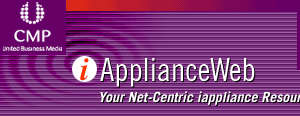



 |
 |
|
|
 |

|
||
|
|
|
|
|||

|
Motorola taps Cellport for universal car phone technologyBy The auto industry's move toward a universal cell phone platform got a shot in the arm this week, as Motorola Inc. signed an agreement with Cellport Systems (Boulder, Colo.) to adopt a technology that enables almost any cell phone to work hands free in an automobile. The agreement reflects a growing desire among automakers to move toward a new telematics business model that would allow drivers to use their existing mobile phones in vehicles without signing up for separate cell phone service contracts. At the same time, it would meet the dictates of pending cell phone laws by means of advanced cradles that offer hands-free dialing, sophisticated voice recognition and the ability to dock any brand of phone inside. "You just can't ignore the reality that people bring cell phones into their cars and want to use them there," said Tim VanGoethem, director of strategy and business development at Motorola (Elk Grove Village, Ill.). Cellport executives said they expect the deal to profoundly affect cell phone use in automobiles, despite recent industry events suggesting that the telematics market is still struggling to find a workable business model. "This is the birth announcement of the second generation of telematics," said Patrick Kennedy, chairman and chief executive officer of Cellport Systems. "Our common goal is to move as fast as we can to go from the current telematics penetration level of 5 percent to a penetration level of 50 percent-plus." The deal does not rely on any far-reaching visions of Internet capabilities in automobiles, but rather, provides a meat-and-potatoes means to boost growth of safe mobile phone in vehicles, industry analysts said. In that sense, it may enjoy immunity against the economic forces that have caused the recent failures of some telematics ventures, such as Wingcast LLC. Motorola will pay a royalty to Cellport to use the company's software application interface and patent portfolio to help portable phones mate with any vehicle's electrical architecture. The Cellport technology enables any brand of mobile phone to work seamlessly with a vehicle's voice-recognition system and its speakers, the company said. Open platform The agreement plows new ground for Motorola, the world's largest automotive semiconductor supplier and a giant in the mobile phone industry. While Motorola has long supported the idea of hands-free use of cell phones in vehicles, until now it has not swung its weight behind the concept of employing an open hardware platform that would allow the use of any and all brands of cell phones. Motorola engineers said they will work with automakers and tier-one electronics suppliers to provide the hardware for a universal phone-docking system. In inking the deal with Cellport, however, Motorola fell short of agreeing to adopt the entire Cellport system, which includes a digital signal processor-based docking station and a $59 "pocket adapter" that allows any cell phone to link to the cradle. Motorola engineers said they would not rule out using the Cellport hardware in future programs with automakers, but added that most automakers prefer that the hardware be customized to their liking. "Automakers want to make sure that those electronics harmonize with the brand experience of the particular vehicle," VanGoethem said. "Under certain circumstances, we might leverage the mechanical work that the Cellport team has done, but we won't necessarily use it in all situations." Cellport, which started out as a research and development firm a decade ago, stands to gain from the deal because it enables the company to add Motorola's engineering muscle to its own engineering staff of 30. Two months ago, Cellport announced plans to sell its automotive business to a bigger company that can handle growing demand for universal docking-station technology. The company has inked several deals with automakers, including a $48 million contract to provide a universal hardware and software platform for Ford, Lincoln and Mercury vehicles. It is also said to have signed a deal with a major Asian automaker. Cellport executives said plans for the sale developed after its engineering staff found it impossible to handle a sudden increase in demand. "The car companies had gotten the universal portable interface fever, and we were becoming the bottleneck of the entire market," Kennedy said. "We couldn't meet everyone's needs." In contrast, Motorola has built up a strong technical work force familiar with the needs of the telematics market, Kennedy said. "Motorola will turbocharge this whole market with its ability to deliver technology." Complimentary partners Analysts said the deal is good for both companies. "As a small company, Cellport doesn't have the resources to go after the automakers," said Thilo Koslowski, lead automotive analyst and director of GartnerG2, a division of Gartner Inc. "That's why it makes perfect sense for them to partner with a big firm like Motorola. And it also makes sense from Motorola's perspective, because it allows them to save money by not inventing the technology." Numerous surveys by automakers and industry analysts indicate that many car buyers are shying away from the current telematics business model, employed most notably by General Motors Corp.'s OnStar division. OnStar, which holds approximately 90 percent of the nascent telematics market, incorporates embedded phones that cannot be removed from a vehicle. Even OnStar's critics admit that the company's technology model has advantages, particularly because its phones are always in the vehicle when needed. But industry experts believe that a large number of consumers now own their own mobile phones. As such, they don't want to be burdened with an extra car phone and an extra set of bills to pay. "The trend is toward using existing cell phones in a hands-free environment in the vehicle," said GartnerG2's Koslowski. "There's no doubt about it." Chrysler Group last year said it would incorporate a universal cell phone platform in its vehicles in 2003. The platform takes the universal concept into new territory by using Bluetooth radio technology to let Chrysler vehicles communicate wirelessly with cell phones, even if they are lying on a vehicle's front seat or sitting in the driver's pocket. Intel, AT&T Wireless, IBM and Johnson Controls are all participating in the development of Chrysler's Bluetooth-based system. "The Bluetooth method will be the next big solution in the telematics marketplace because it doesn't require a docking station," Koslowski said. "But in the near term, the Cellport solution might have more success because there aren't many Bluetooth-enabled phones yet." Still, Cellport executives said that the company hasn't changed its plans to sell its automotive business, despite Motorola's newfound interest in its technology. "We're down to a term sheet with a couple of parties," Kennedy said. Executives hinted that a European-based supplier might be one of those in the running to acquire the business. |
|
||||||||

Terms and Conditions Privacy Statement |
||||||||||